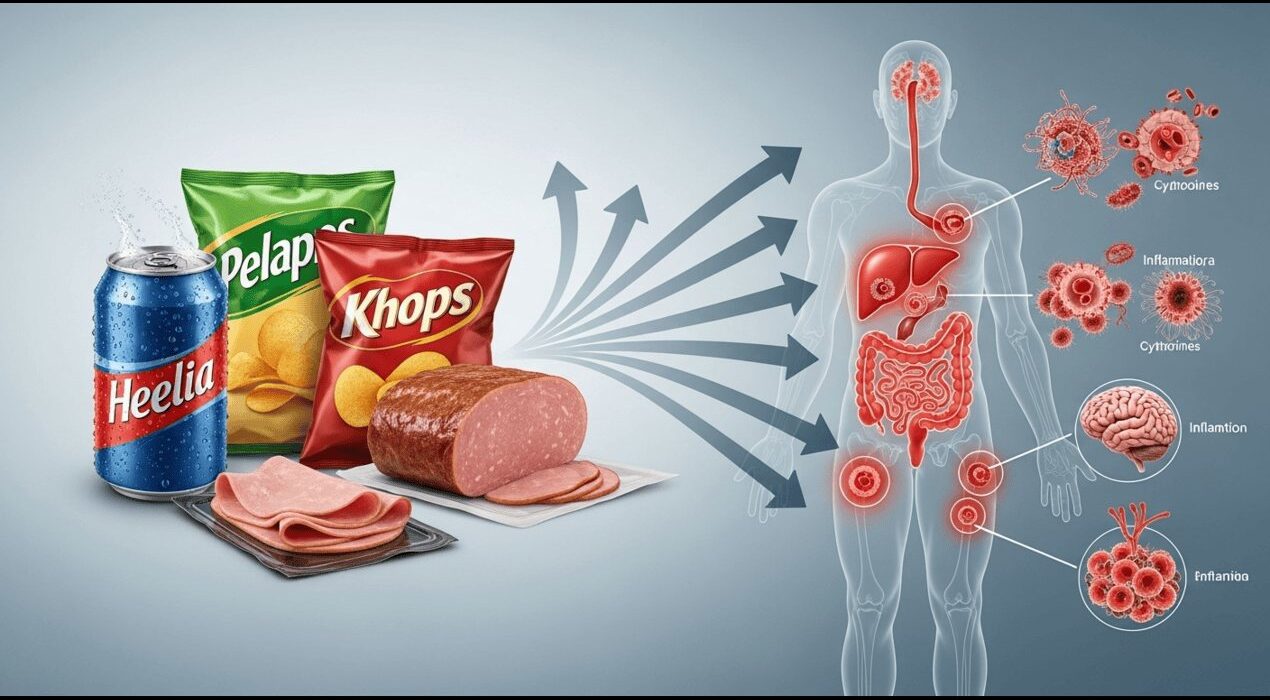Ultra-processed foods (UPFs) such as sodas, snacks, and processed meats dominate U.S. diets. However, new research links them to inflammation and serious health risks. A Florida Atlantic University study shows that heavy UPF intake fuels inflammation, which drives heart disease, cancer, and other chronic illnesses.
UPFs now make up nearly 60% of adult calories and almost 70% for kids. These foods lose vital nutrients, contain additives, and last longer on shelves. In addition, they often trigger overeating and poor eating habits.
Researchers analyzed data from 9,200 adults, tracking diet, lifestyle, and inflammation markers. They measured high-sensitivity C-reactive protein (hs-CRP), a key indicator of inflammation.
People who got 60–79% of calories from UPFs were 11% more likely to show high hs-CRP. Even moderate intake raised risk by 14%. As a result, older adults, smokers, and people living with obesity faced the highest dangers. For those individuals, the chance of inflammation rose 80%.
“Our findings show that people who eat the most UPFs have much higher levels of hs-CRP,” said Allison H. Ferris, M.D., senior author.
The study authors compared ultra-processed food makers to the tobacco industry. They called for fewer additives, clearer labels, and more whole foods. In addition, experts stressed that education, affordability, and access must all form part of the solution.
Ultra-Processed Foods Raise Inflammation & Chronic Disease Risk






